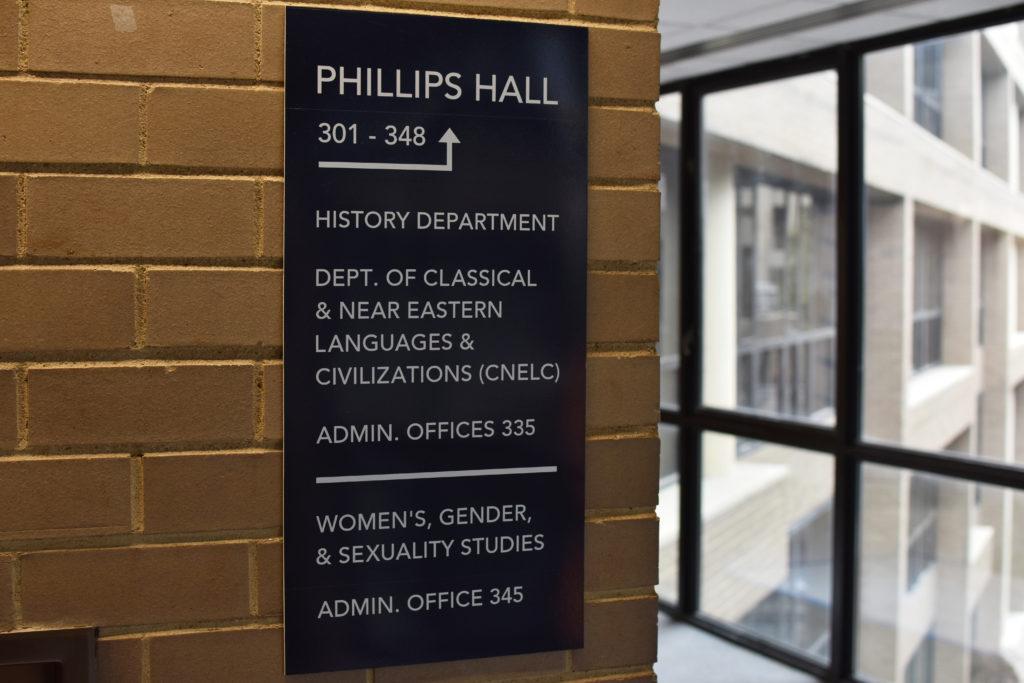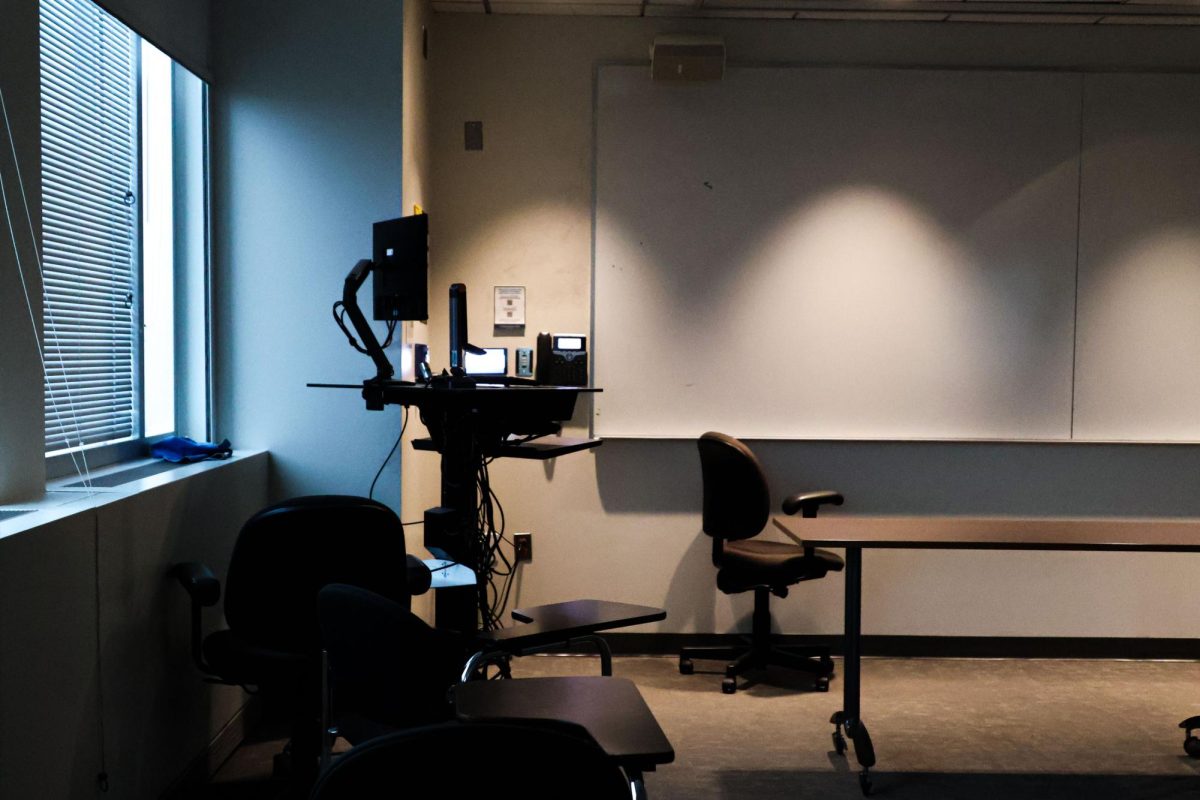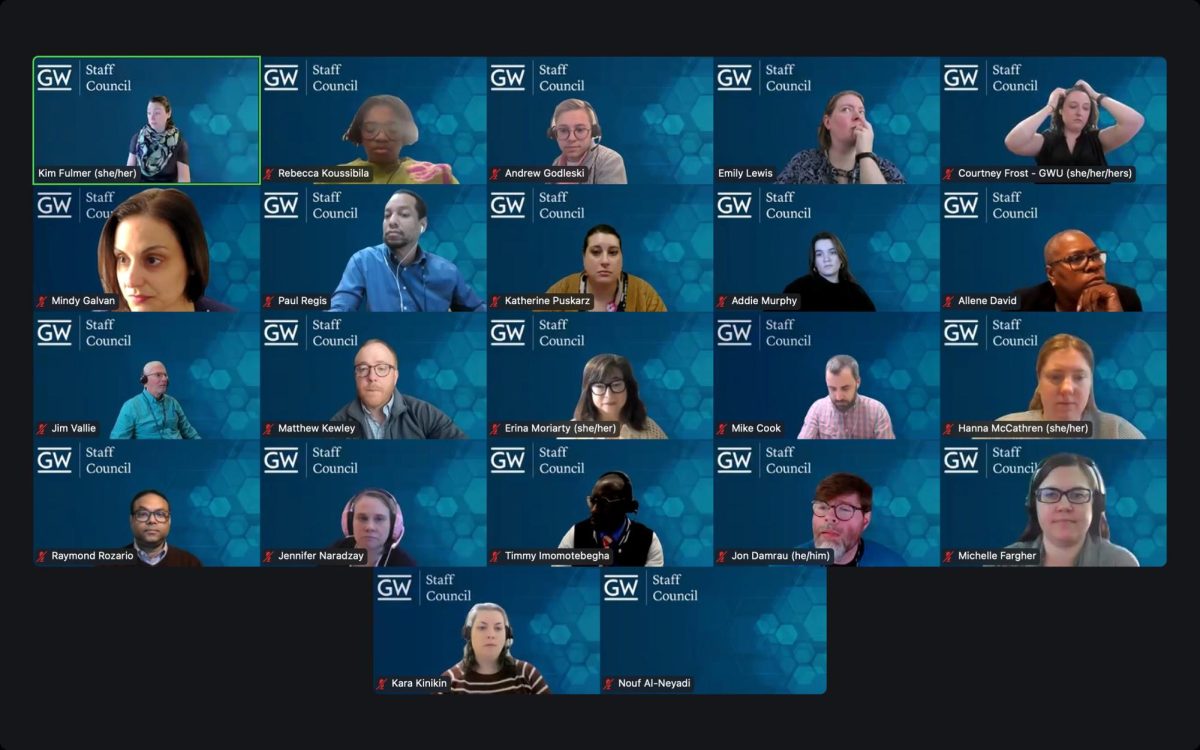History department faculty launched a seminar series earlier this month to increase the visibility and discussion surrounding varying types of inequality in society.
The Interdisciplinary Inequality Seminar consists of three presentations given throughout the academic year to provide a platform for faculty from other universities to present their research on inequality from several different academic disciplines. Faculty said the seminars will lead to new ways of understanding the issue as more historians begin to investigate inequality after former President Barack Obama called it “the defining problem of our time.”
Trevor Jackson, an assistant professor of history who proposed and oversees the seminar series, said University Seminar Funding Program staff approved the program this summer that funds the speakers and their travel accommodations up to $4,000 in total.
“We thought this would be a great fit for a research series to bring in scholars from outside GW to bring together scholars from within and talk about inequality in the broadest way possible,” he said.
Jackson said his background is in interdisciplinary work as an economic historian who studies the history of inequality and financial crises. He said that after teaching a history class on inequality last semester and speaking with professors from different departments and schools, he decided a seminar series was a good way to explore the topic of inequality – including racial and economic inequality – given its prevalence worldwide.
Jackson said the first seminar – held Nov. 1 – featured Christy Thornton, a sociology professor from Johns Hopkins University, who presented on a chapter of her forthcoming book about the Mexican government’s attempt to address international inequality in the 1970s. The remainder of the talks, open to faculty, students and non-GW scholars, will feature two professors from Columbia University and the University of Maryland and are scheduled for the spring semester.
“Nobody has a monopoly on this, and we all will benefit from learning what each other is doing,” he said.
He said the audience of the first seminar included more than 15 faculty from GW and other schools, graduate students and International Monetary Fund professionals in Phillips Hall.
Jackson said he hopes the interdisciplinary focus of the series will encourage students and scholars to share their ideas about inequality through the lens of several academic fields, because the issue is “a pressing and hot topic at the moment.” He said inviting speakers with different backgrounds on inequality, including sociologists, economists and political scientists, allows a diverse range of scholars to be a part of the discussion.
“I want everybody to realize that everybody can and everybody in some ways does work on inequality,” he said. “It’s actually something that can potentially unite us, and in that way, produce new interesting work, new interesting consumers, new ways of thinking about ourselves and the world.”
Jackson said he sees the seminar series as the beginning of building a research community on inequality at the University if the effort continues to receive funding in subsequent years, adding that the interdisciplinary study of inequality is a relatively new area of study in development.
“I hope this is an indication that GW is going to start taking both a D.C.-wide leadership and – I hope, potentially – a national leadership role in defining how we study inequality,” he said.
Bryan Stuart, an assistant professor of economics who helped Jackson develop the series and attended the first presentation, said the new approach to learning about inequality is useful for both scholars and students because it “broadens their horizons” and expands their familiarity with different approaches to research inequality.
“It allows you one, to just learn, which is valuable, but also to think about the different ways you might answer questions within your own discipline,” he said.
He said the first seminar was a “positive experience,” and the questions asked during the discussion reflected the audience’s diverse disciplinary backgrounds.
Katrin Schultheiss, the chair of the history department who was also present at the first seminar, said she is “glad” Jackson launched the seminar series because the interdisciplinary approach to the topic can yield new insight by considering how other disciplines like public health and medicine contribute to scholarship on inequality.
“I agree that bringing scholars together from the area to talk about issues that they are all interested in is generally a good idea,” she said. “More conversations you can have with people who you don’t see in the hallways every day, the better.”
She said the history department has not hosted a University-funded seminar series in the past five years, adding that she was impressed with Jackson for creating the series despite arriving at GW just a couple years ago.
“This is his second year here at GW, so he’s brand new, and he’s already taken the initiative to do this – to undertake a rather significant project to bring further scholarship – so I think that’s wholly admirable,” she said.








